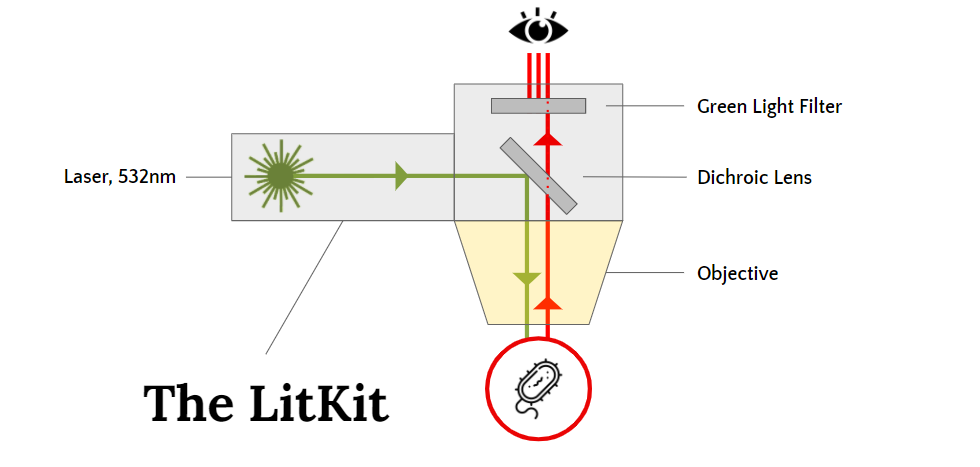The LitKit
The LitKit is a small, cheap, easy-to-handle fluorescent microscope prototyped by Anusha Manglik and Will Polsky that is designed for use in classroom settings. While most fluorescence-viewing systems tend to be in the range of $50k-$500k, we were able to build this system for only $100-$200.
It takes the base concept of fluorescence microscopy, which includes laser and filter systems, and simplifies the system using hobby lasers, 3D printing, elementary machining, and glass-cutting. It mounts onto most basic light microscope systems between the base and objective. When connected to a battery pack and switched on, it allows the user to see fluorescently-biomarked proteins inside of cells and organisms in real time, a unique deviation from the boring, stable images seen on a typical light microscope.
Although it can be used on any time of cell, we have found that the system is best paired with the model organism S. pombe. We have biomarked multiple strains for viewing with the fp tdtomato on actin, myosin, and the histone h3. Such cells can be recorded endocytosing, dividing, and moving around by students.
Through Yale’s accelerator program, we also came up with a business and marketing plan for the device, gathering over one-hundred teacher contacts who would be interested in purchasing and using the device. We pitched the venture at demo day.
In the virtual environment of 2020, we were also able to present our device at the Global Community Bio Summit held by MIT’s Media Lab.
Further work on the project will involve creating a multiple laser-filter swap system to allow students to cycle between fluorescence types and tying the electronic circuit we designed to a bluetooth switch as to allow non-photobleaching photography over long periods of time. In a non-virtual world, we hope to establish better manufacturing practices, decide on open source vs patenting, and roll out to our first classrooms.
You can view a formal presentation of the work here. Feel free to contact me at anusha.manglik@yale.edu with any inquiries about this project.

